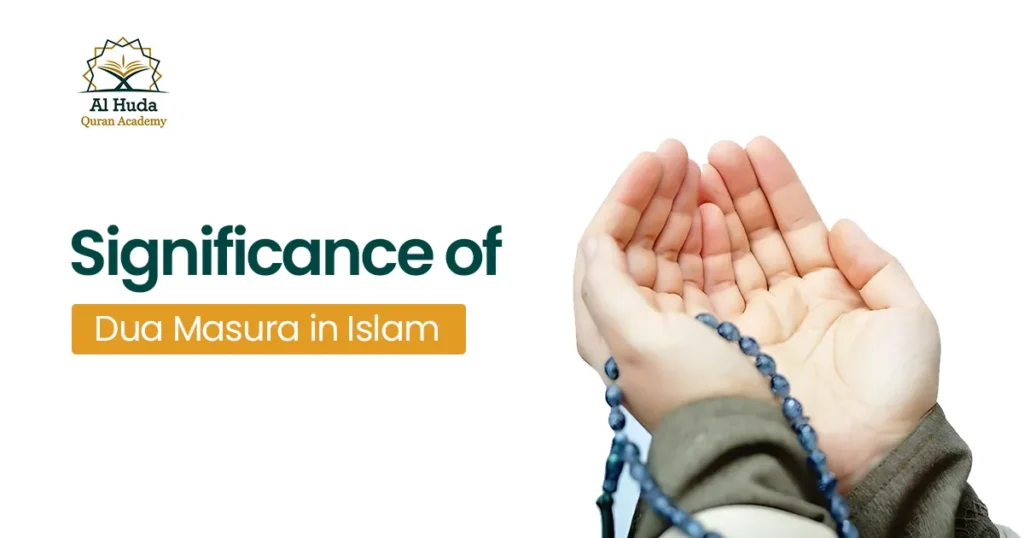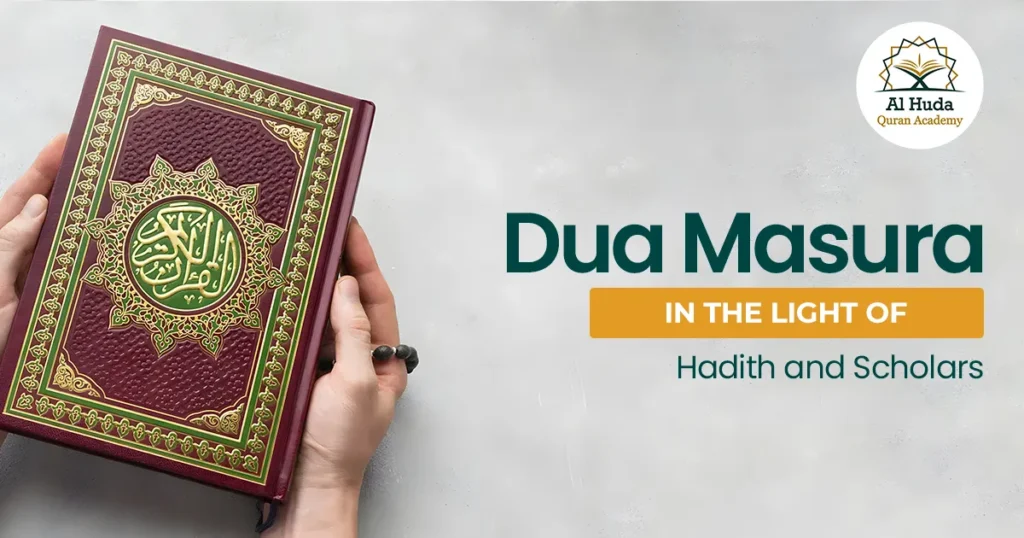In today’s fast-paced world filled with stress, anxiety, and uncertainty, turning to Allah through sincere duas offers deep comfort and peace. Among the many beautiful supplications Muslims have embraced over the centuries, Dua Masura stands out in its own special way. It’s a heartfelt prayer that many recite after Salah, asking Allah for forgiveness, protection, peace, and His constant guidance. Dua Masura brings a sense of closeness to Allah, reminding us to rely on Him in every part of our lives. It’s a meaningful dua that strengthens our bond with our Creator.
This article serves as a complete guide for appreciating and understanding how to apply duas in one’s individual spiritual journey for the first time, as much more advanced supplications have never been explained in detail. No matter if you are new to learning duas or are deeply knowledgeable but wish to connect more personally with the prayer, this comprehensive overview will help all able to adopt this beautiful supplication.
What is Dua Masura?
Dua Masura is best known as a short excerpt with great supplicational depth that understanding it allows the individual to externalize reverence while praising and repenting to the Almighty Allah for various reasons. The name \“Masura\” originates from the Arabic word that denotes the meaning of \“short” or “concise” and gives life to the dua because it is indeed short but full of demanding requests of great magnitude. In all respects, it covers a range of repentance as well as seeking mercy while bida or evil and expressing gratitude.
The prayer does not belong to the Quran, but it can be located in almost every Islamic prayer book which makes it quite popular in Islamic schools and Mada*ras where it is taught to school children because of its short phrases and strong impact invoking allah. Simple text does not detract from its relevance as an active prayer in the lives of many children and adults around the world.
Significance of Dua Masura in Islam

Dua Masura holds deep spiritual value as a concise supplication that reflects a believer’s reliance on Allah for mercy, guidance, and protection.
The Spiritual Essence of Supplication
Dua is a direct connection between a servant and the Creator. It requires no intermediary, no formalities—just sincere words from the heart. In Islam, it is not only encouraged but considered one of the highest forms of worship. Dua Masura is a perfect example of this intimate dialogue. It allows the believer to open their heart, ask for forgiveness, express gratitude, and seek guidance—all in one concise prayer.
The Role of Dua in a Muslim’s Life
For a believer, duas are like religious nourishment—vital for preserving emotional and mental well-being. Prophet Muhammad ﷺ said, “Dua is the weapon of the believer.” This highlights its importance not only in instances of want however also as a daily dependancy. Dua Masura, when recited consistently, turns into a reminder of Allah’s mercy and our dependence on Him for everything.
Understanding the Words of Dua Masura
This section explores the powerful meanings behind each phrase of Dua Masura, highlighting its comprehensive spiritual depth.
Translation and Meaning
Let’s explore the English translation of Dua Masura to better understand its depth and richness:
“O Allah! Forgive me, have mercy on me, guide me, protect me, provide for me, and elevate my rank. Grant me good health, and pardon my sins.”
Each word and phrase in this supplication carries layers of meaning. For instance:
- “اللهم اغفر لي” (O Allah, forgive me) – A humble plea for Allah’s forgiveness for all known and unknown sins.
- “وارحمني” (Have mercy on me) – A request for compassion in both this world and the Hereafter.
- “واهدني” (Guide me) – Asking Allah to keep us firm on the straight path.
- “وعافني” (Grant me well-being) – A plea for physical and emotional health.
- “وارزقني” (Provide for me) – Seeking halal and sufficient provision from Allah.
This dua captures the core desires of any Muslim’s heart—spiritual growth, physical well-being, and Allah’s divine protection.
When Should You Recite Dua Masura?
Learn the ideal times to recite Dua Masura for maximum spiritual benefit and connection with Allah.
Ideal Times and Occasions for Recitation
While there is no specific hadith mandating whilst to recite Dua Masura, it has turn out to be a commonplace practice to mention it immediately after the day by day compulsory prayers. The time after salah is spiritually massive because it’s a moment while hearts are tender and greater receptive to divine mercy.
You can also recite it:
- Before going to bed
- After making tawbah (repentance)
- When feeling overwhelmed or seeking inner peace
- During special nights like Laylatul Qadr, Ashura, or Ramadan nights
Integrating it into Daily Salah
One of the simplest ways to make Forgiveness dua in Islam a daily habit is to attach it to your salah routine. Right after saying salam and completing the tasbih, take a moment to raise your hands and recite this dua with full attention and sincerity. Make it your daily spiritual “reset button.”
Benefits of Reciting Dua Masura Regularly
Discover the emotional, spiritual, and protective blessings that come from making Dua Masura a part of your daily routine.
Emotional and Spiritual Benefits
Regularly reciting Dua Masura brings a profound sense of peace, mindfulness, and reliance on Allah. It reminds us that while we work hard in this world, our ultimate success lies in His mercy and guidance.
Benefits include:
- Developing a deeper connection with Allah
- Feeling emotionally grounded and spiritually uplifted
- Boosting faith and increasing taqwa (God-consciousness)
- Cultivating habits of thankfulness and reflection
Protection from Hardships and Evil
This dua includes particular words soliciting for steering, mercy, and safety. These are important in an international world filled with trials and distractions. By requesting Allah’s safety each day, you spiritually protect yourself and your own family from harm, each seen and unseen.
How to Memorize Dua Masura Easily
Explore simple and effective techniques to help you memorize Dua Masura quickly and retain it for lifelong spiritual practice.
Practical Tips for Memorization
- Break the dua into small sections. Learn one phrase at a time until you can connect them smoothly.
- Use audio recordings to hear the correct pronunciation and melody of the recitation.
- Repeat it after every prayer until it becomes second nature.
- Write it out by hand or use flashcards for better retention.
Using Visual Aids and Repetition
Visual learners can benefit from charts, infographics, and posters of the dua placed in visible spots—like on your bedroom wall or study desk. Repetition builds familiarity, and consistency builds memory.
Dua Masura for Children and Beginners
An easy and meaningful supplication, Forgiveness dua in Islam is perfect for introducing children and beginners to the beauty of daily duas.
Teaching It to Young Ones
One of the best things about Dua Masura is how simple and impactful it is. It’s often among the first duas taught to children in Islamic education. At Al-Huda Quran Academy, we make this learning process fun and interactive through games, videos, and storytelling to help young learners connect with the dua’s meanings.
Why It’s a Great Starting Dua
- Easy to pronounce
- Short and memorable
- Covers multiple important themes
- Instills spiritual awareness early in life
Dua Masura in the Light of Hadith and Scholars

Explore the scholarly views and Islamic traditions that highlight the authenticity and importance of Dua Masura in a Muslim’s spiritual practice.
Scholarly Views and Endorsements
Though Forgiveness dua in Islam is not directly from the authentic hadith collections, it is considered a masnun (recommended) dua, compiled from various authentic phrases used by the Prophet ﷺ in different contexts. Scholars agree that as long as a dua is in line with Islamic values and seeks things permitted by Allah, it is valid and encouraged.
Its Usage in Traditional Madaris
Dua Masura has been passed down through generations in madrasas and Quran schools as part of the basic Islamic curriculum. It’s recited regularly by students and is often part of their daily spiritual practice.
Common Misconceptions About Dua Masura
Addressing the common misunderstandings surrounding Dua Masura, clarifying its authenticity and proper usage in Islamic practice.
Is It Part of the Quran?
No. Dua Masura is not a Quranic verse. This is a common misconception. It is a combination of powerful supplications taken from various sayings of the Prophet ﷺ and Islamic traditions.
Clarifying Cultural vs. Religious Practices
Sometimes, people may view Dua Masura as a cultural addition to salah. However, since it is consistent with Islamic values and involves seeking Allah’s mercy and guidance, it is completely acceptable in practice.
Resources to Learn Dua Masura Online
Discover the best online platforms and tools to help you learn and master Dua Masura with proper pronunciation and understanding.
Best Platforms and Tools
There are infinite apps and web sites presenting audio recordings, word-by means of-phrase breakdowns, and translations of Dua Masura. But it’s critical to research from sincere and authentic resources to make certain proper pronunciation and expertise.
How Al-Huda Quran Academy Helps You Learn
At Al-Huda Quran Academy, We specialize in teaching actual Islamic expertise, such as daily duas like Dua Masura. Through our online Quran training, dua periods, and interactive mastering materials, you or your infant can grasp this beautiful supplication at your personal pace, from the comfort of your private home.
Frequently Asked Questions (FAQs)
No, it isn’t a part of the Quran. It’s a non-Quranic supplication that aligns with the lessons of Islam.
Absolutely! It’s a notable novice-pleasant dua for youngsters because of its simplicity and comprehensive message.
You can nonetheless recite it! Just make certain to analyze its translation so your coronary heart connects with the meanings.
Yes, it’s a stunning manner to stop your prayer in search of Allah’s mercy and safety.
You can enroll in our courses at Al-Huda Quran Academy where we provide structured lessons for learners of all levels.
Conclusion
Dua Masura encompasses a whole lot more than mere recitation – it’s miles a religious asset. Its period can be quick, but the meanings are profound. From seeking forgiveness and protection to guidance and sustenance, it deeply resonates with a Muslim’s lifestyles. Daily recitation fortifies one’s bond with Allah, infusing tranquility and resilience in opposition to the pains of life.
Dua Masura should be incorporated into ordinary life to experience the alternate it brings to the coronary heart and soul.

